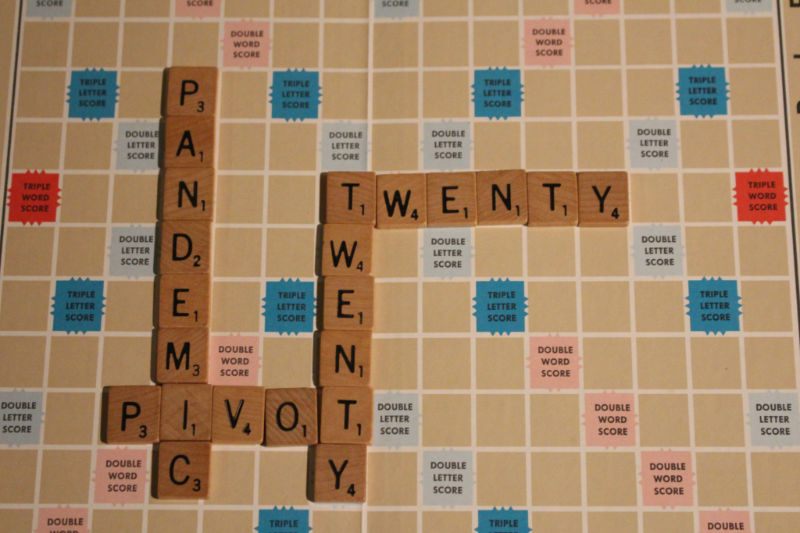Words matter. Not all words with supposedly similar meanings are the same. If you look through a list of synonyms for a particular word, you’ll find each conveys a slightly different feeling, a variation that makes it more or less appropriate in a given situation. Words have their own nuanced connotations. There are often layers of meaning in a given word. Writers exploit these layers to create humour, poignancy, or emotional impact.
Personal experience and perspective create associations with words that vary from individual to individual. A specific word may trigger anger or sadness in you, but not have that effect on a close friend. When someone says a word or phrase commonly used by my mother-in-law, brother, or parents when they were alive, the pang of memory momentarily distracts me from the current conversation and takes me back in time.
Words have associations beyond the personal. Certain words reflect the general culture at a particular moment in time. That has led to the “Word of the Year” (“WOTY”). Dictionary and linguistic organizations assess the most important word or expression in the public sphere in a year. Some organizations choose this word based on what was most looked up. Others pick a word they feel most incorporates the feeling of the year.
What word sums up 2020? The American Dialect Society word of the year is covid. Both Merriam Webster and dictionary.com chose pandemic as the word of the year. Dictionary.com invited people to submit their choices for word of the year. The top submission for their People’s Choice 2020 Word of the Year was unprecedented. Collins Dictionary chose lockdown as 2020 word of the year. Cambridge Dictionary named quarantine as 2020 word of the year. The Australian National Dictionary Centre 2020 word of the year is iso, short for self-isolation.
There is no shortage of unique words for 2020. The lexicographers at Oxford Languages realized 2020 could not be neatly accommodated in one single word of the year. They decided instead to report on the breadth of language change and development over the year in their Words of an Unprecedented Year report.

The report highlights some new coinages, such as Blursday (the way the days of the week blend together), covidiots (people who ignore the warnings regarding COVID-19 public health and safety), and doomscrolling (the act of consuming an endless procession of negative online news). The report shows how the pandemic has dominated public conversation and given us a new vocabulary.
The report also talks about words that saw huge increases in use in 2020. Words such as circuit-breaker, lockdown, support bubbles, PPE, shelter-in-place, frontline or essential workers, workcation, staycation, remote, superspreader, and face masks. Phrases around face masks included mask-up, anti-mask, and mask-shaming. In 2020, it became increasingly necessary to specify “in-person” for certain events (e. g. voting, learning, worship). There were a few words listed not directly connected to the pandemic, such as bushfires, Black Lives Matter, and cancel culture.
On December 20, 2020, I listened to a CBC Radio’s Sunday Magazine interview with Lynne Murphy, a professor of linguistics at the University of Sussex. She talked about new words coined, old and specialized words that formed the new vocabulary, and how to capture a time in words. In the interview, Murphy suggested the year 2020 itself deserved attention as a word. We have used it as an adjective (that is so 2020!) and an explanation (because 2020). We have also modified it in ways for emphasis (20-freaking-20).
Murphy also talked about differences around the world in the focus of the word of the year. The Chinese word of the year in 2020 is about coming together and supporting each other. The Japanese word of the year is hygiene related. Other countries may have focused on words that reflect how the world and our individual lives have changed. You can find the full eleven-minute interview with Murphy here.
I have a personal list of 2020 words and phrases I will be only too happy to see fade from use. They are:
- abundance of caution
- unprecedented
- physical (or social) distancing
- flatten the curve
- pivot
- new normal
- We’ll get through this together (a good sentiment, but far from the reality of the inequity of circumstances affecting people’s ability to get through this)
The use of these words and phrases will continue into 2021 because the pandemic is far from over, but is it too much to hope they will no longer be part of our lexicon before the end of 2021?

Interesting article, Donna. I particularly relate to “Blursday”. It does seem as if each day is a repeat of the last. I do hope that many of those pandmc-related words fade in use by 2022.
Thanks Linda. The days really do blur together now, don’t they?